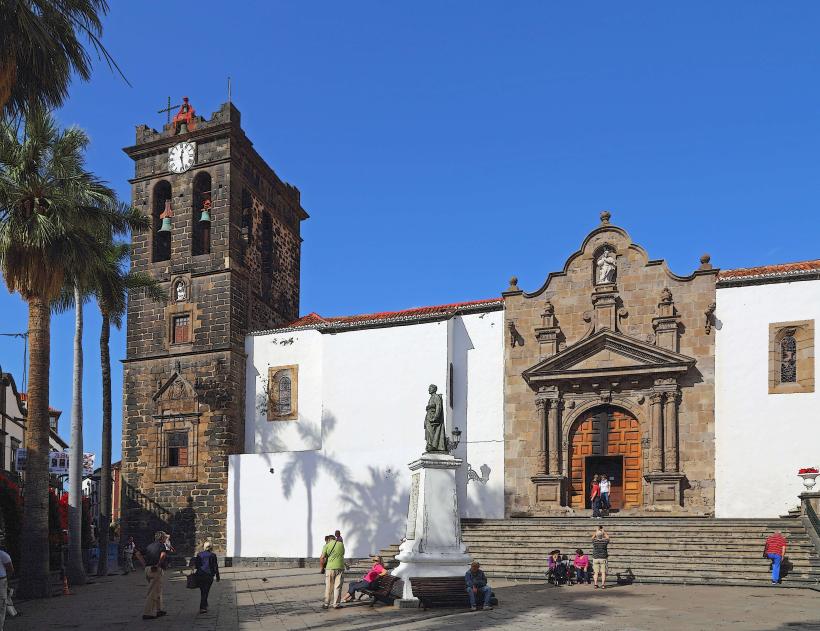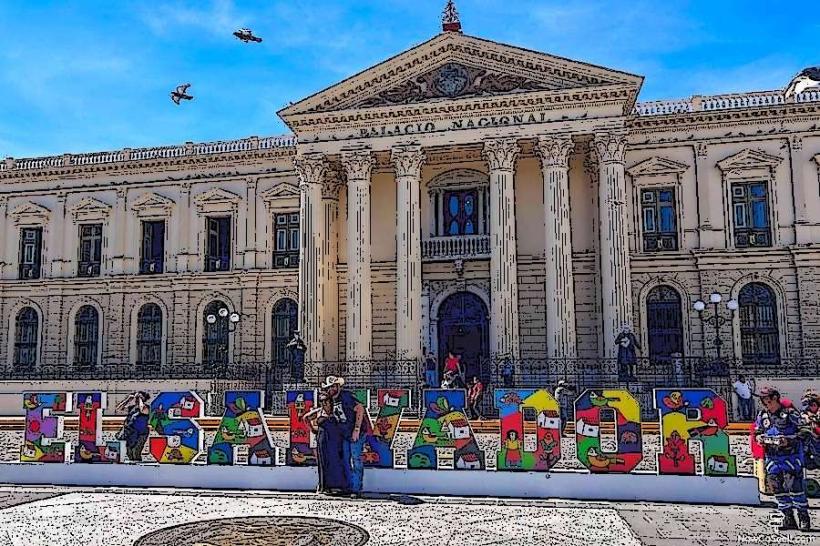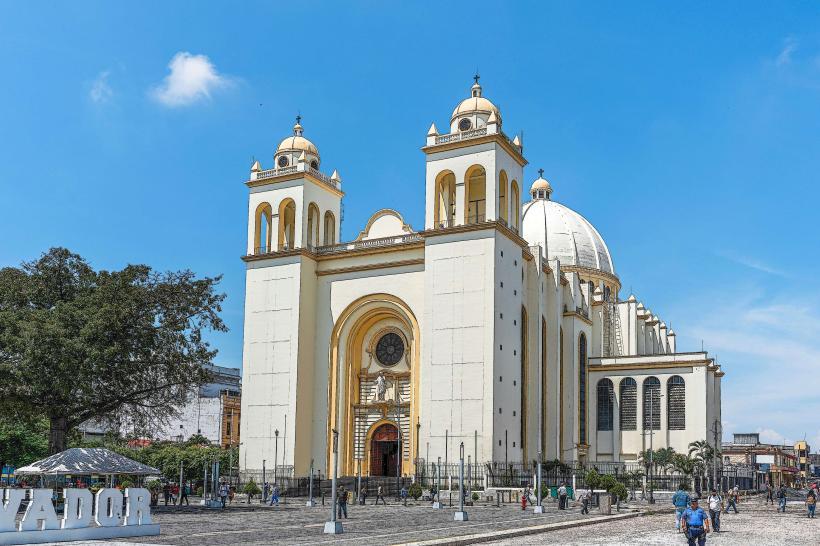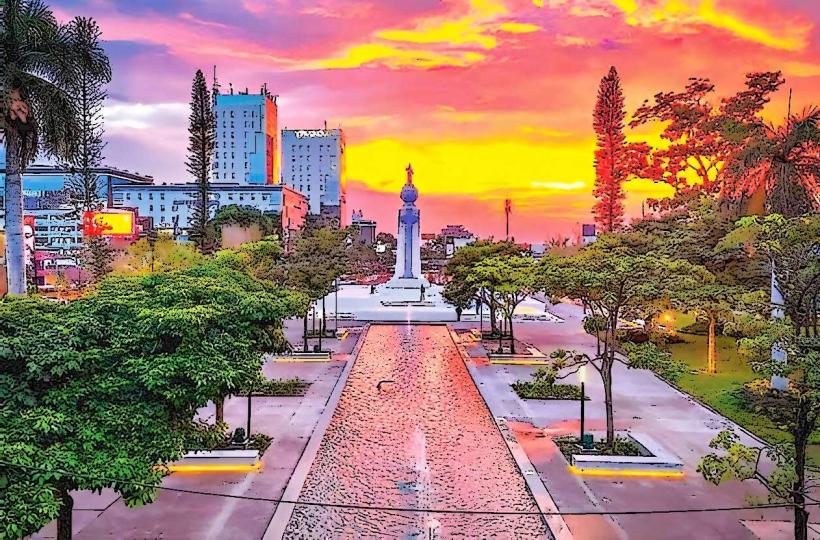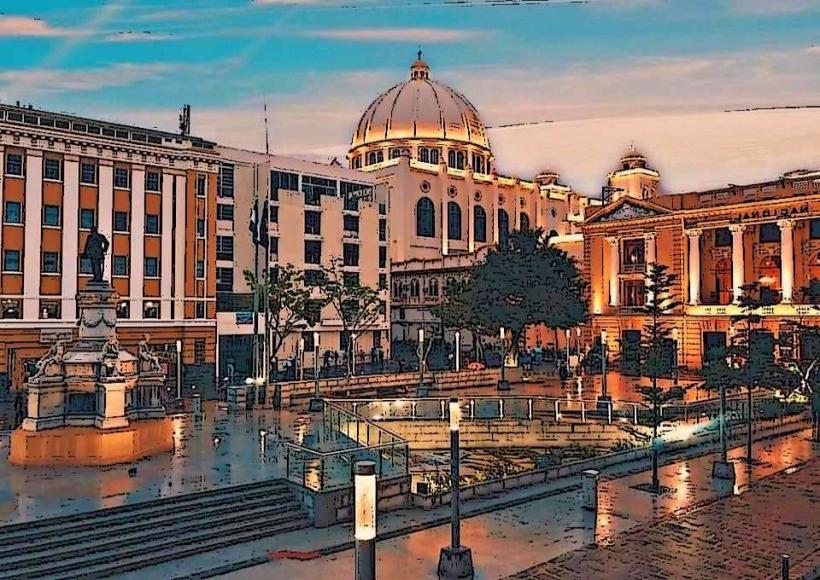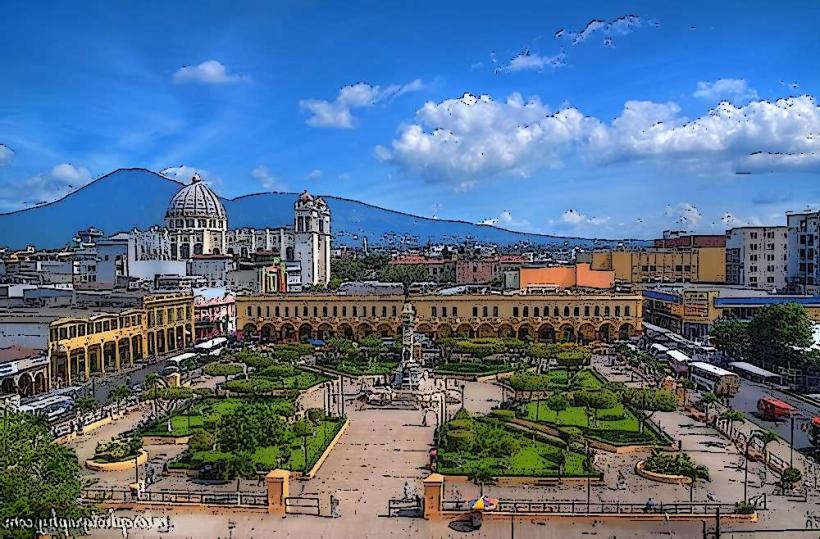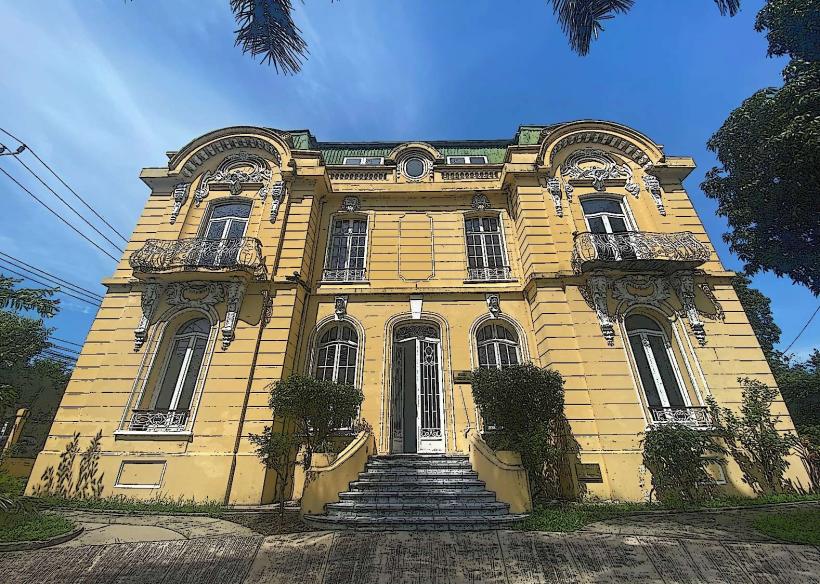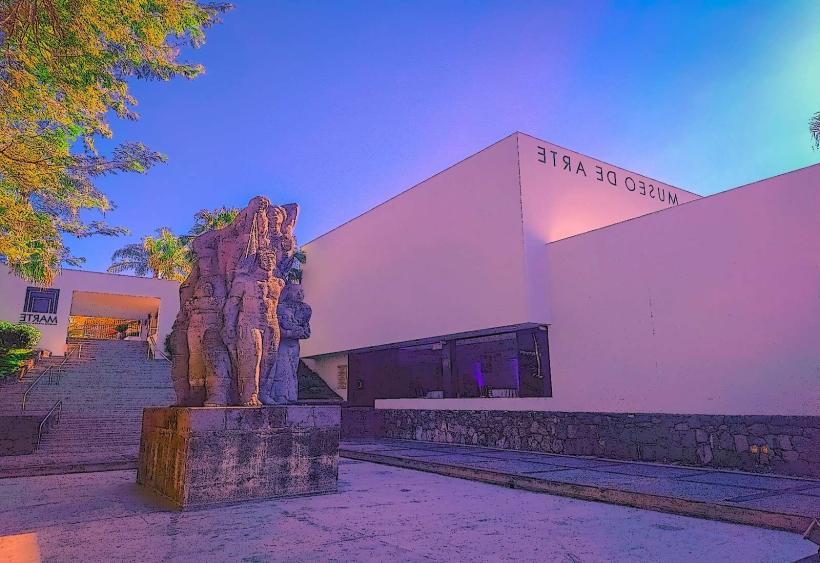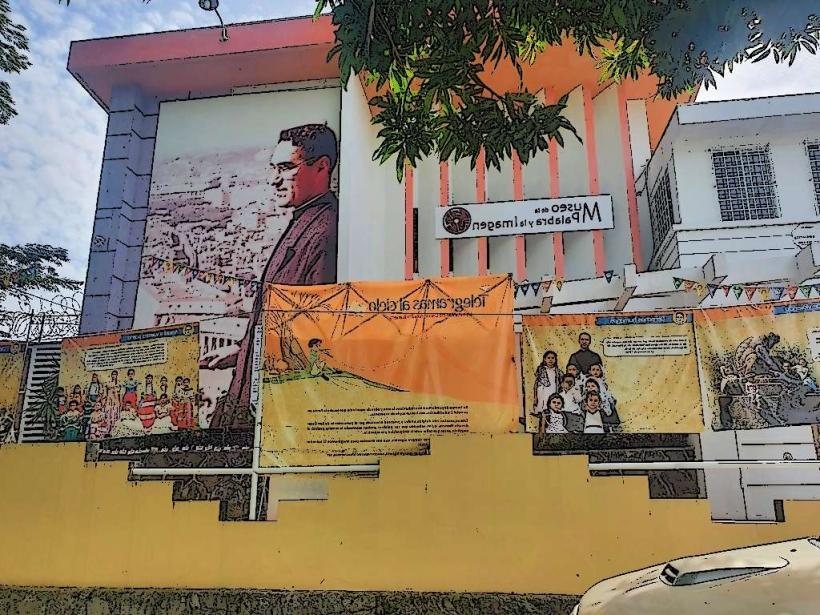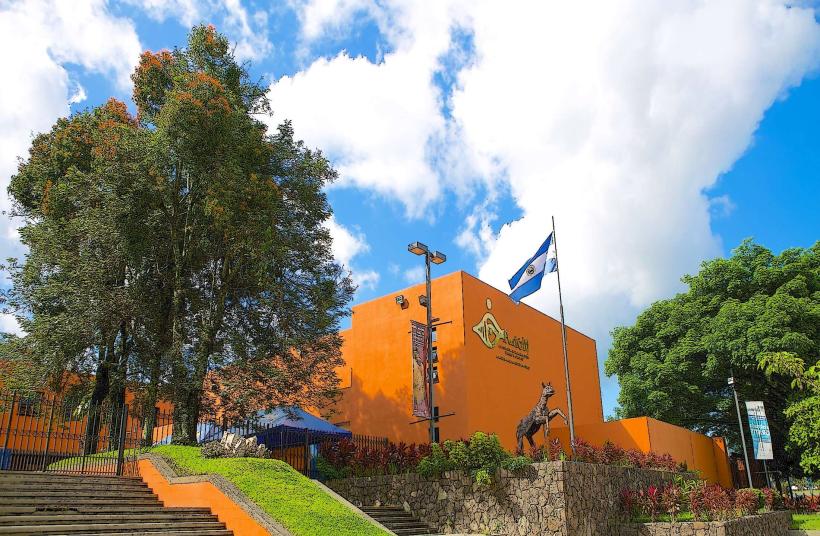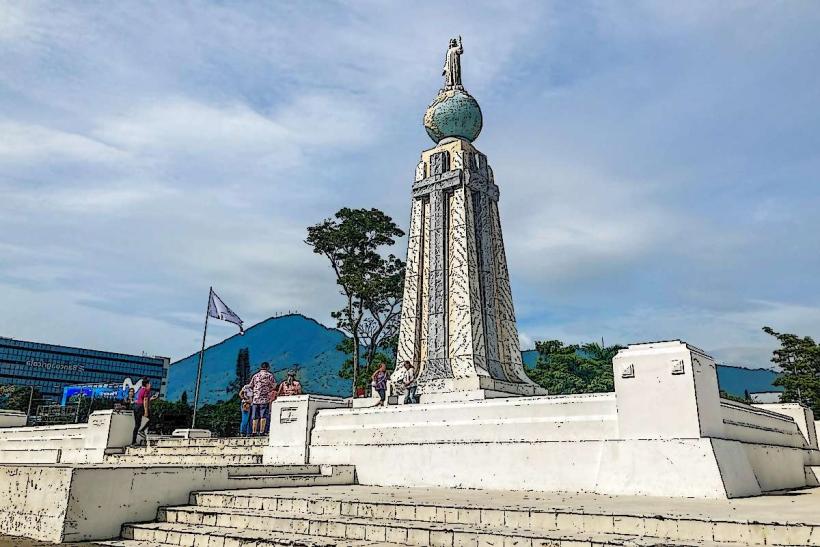Information
City: San SalvadorCountry: Grenada
Continent: North America
San Salvador is the capital and largest city of El Salvador, a country in Central America. Situated in the central part of the country, it serves as the political, cultural, and economic hub of El Salvador. Known for its vibrant city life, historical landmarks, and proximity to natural beauty, San Salvador offers a mix of urban and rural attractions.
Geography and Climate
San Salvador is located in the San Salvador Valley, an area surrounded by volcanoes, including San Vicente and Ilamatepeq. The city is situated at an elevation of around 600 meters (1,970 feet) above sea level, which gives it a moderate climate compared to coastal areas. The climate is classified as tropical savanna, with a distinct wet and dry season. The dry season runs from November to April, while the wet season lasts from May to October, bringing heavier rainfall.
The city itself is positioned near the Lago de Ilopango (Ilopango Lake), which is a large volcanic crater lake, and it is also not far from the Cerrón Grande Reservoir.
History and Culture
San Salvador has a long and rich history, dating back to its founding in 1525 by Spanish conquistadors. The city has seen significant historical events, particularly during the colonial period, and it has been shaped by both indigenous Pipil influences and European colonialism. Over the centuries, the city has evolved into a bustling metropolis.
San Salvador was severely impacted by a series of devastating earthquakes in the 20th century, especially the 2001 earthquakes that caused major destruction. Despite this, the city has rebuilt itself and continued to grow as the capital of El Salvador.
The culture of San Salvador reflects its mixed heritage, with indigenous, Spanish, and Afro-Salvadoran influences. Traditional music, dance, and art play important roles in the city's culture, and the capital is home to numerous festivals throughout the year, including Fiestas Agostinas, which celebrates the Virgin of the Assumption, the patron saint of the city.
San Salvador is also a center for education and literature, with several universities and cultural institutions located in the city, such as the National Museum of Anthropology and Teatro Nacional (National Theatre).
Economy
San Salvador is the economic powerhouse of El Salvador, contributing significantly to the country’s GDP. The city's economy is diversified, with a strong presence of the manufacturing, service, and financial sectors. The city is home to numerous international businesses, banks, and corporations. It also serves as the center of trade, with markets and commercial centers that cater to both local and international buyers.
The manufacturing sector is important in San Salvador, particularly in the areas of textiles, electronics, and food processing. The city’s industrial parks house factories that produce a variety of goods, both for domestic use and for export.
In addition, San Salvador has become a significant center for tourism in the region. While the country has faced challenges, such as security concerns, the capital continues to attract tourists due to its rich culture, historical sites, and access to surrounding natural landscapes.
Tourism and Attractions
San Salvador offers several cultural, historical, and natural attractions for visitors. Some of the highlights include:
Catedral Metropolitana: The Metropolitan Cathedral of San Salvador, located in the Plaza Barrios, is a stunning example of colonial-era architecture. It is the main church in the city and houses the tomb of Óscar Romero, the archbishop who was assassinated in 1980 and is a revered figure in El Salvador.
Palacio Nacional: The National Palace of El Salvador is an impressive historical building located in the city’s Plaza Libertad. It was the official residence of the country’s president until 1974 and is now a museum. The building is known for its beautiful architecture and historical significance.
Teatro Nacional: The National Theatre is one of the oldest and most important cultural venues in the country. It hosts various performances, including plays, operas, and concerts. Its neoclassical architecture and the rich cultural experiences it offers make it a major attraction for visitors.
Museo Nacional de Antropología (National Museum of Anthropology): This museum offers a deep dive into El Salvador’s history and cultural heritage, including exhibits on indigenous peoples, the country’s colonial past, and the Salvadoran civil war.
Parque Nacional El Boquerón: Located on the slopes of the San Salvador Volcano, El Boquerón National Park is a popular outdoor destination for hiking and nature walks. Visitors can explore the crater of the active volcano, which is an extinct caldera with an impressive panoramic view of the city and surrounding areas.
Ilopango Lake: A short drive from San Salvador, Ilopango Lake is a picturesque volcanic crater lake known for its beauty and opportunities for boating, fishing, and swimming.
Monumento al Divino Salvador del Mundo: This iconic monument, located at a major intersection in the city, represents the Divine Savior of the World and is a symbol of the country’s faith and history. It is one of the most recognizable landmarks in San Salvador.
Jardín Botánico La Laguna: For those interested in nature, this botanical garden in the city offers a peaceful escape with its diverse plant species and tranquil walking paths.
Cuscatlán Park: A central green space that offers an escape from the hustle and bustle of the city, with open areas for picnics, exercise, and relaxation.
Paseo El Carmen: This vibrant street in the Santa Tecla district is lined with cafes, shops, and restaurants, making it a great place to experience local culture and enjoy traditional Salvadoran food.
Safety and Security
San Salvador, like many cities in Central America, faces challenges related to crime and violence, particularly in certain areas. While the city has made significant progress in improving safety, travelers are advised to take precautions and stay in well-traveled areas, particularly in the city center. Many visitors also prefer to explore the city with guided tours or in groups for added security.
Transportation
San Salvador is a transportation hub in El Salvador, with a modern road network and a public transportation system that includes buses, taxis, and shuttle services. The city also has an international airport, Monseñor Óscar Arnulfo Romero International Airport, which serves as the main entry point for international travelers.
The city's road infrastructure is generally well-developed, with major highways connecting San Salvador to other regions of the country. However, traffic congestion can be an issue, especially during rush hours. There are also metrobus systems and local buses that provide inexpensive transportation for residents and visitors alike.
Conclusion
San Salvador is a dynamic city that offers a fascinating mix of cultural history, modern amenities, and natural beauty. With its blend of historical landmarks, museums, vibrant markets, and surrounding outdoor attractions, San Salvador provides both locals and tourists with a unique glimpse into the heart of El Salvador. Whether you are exploring the city's rich history, enjoying its culinary offerings, or visiting its nearby volcanoes and lakes, San Salvador is a city full of surprises and offers a diverse range of experiences.

